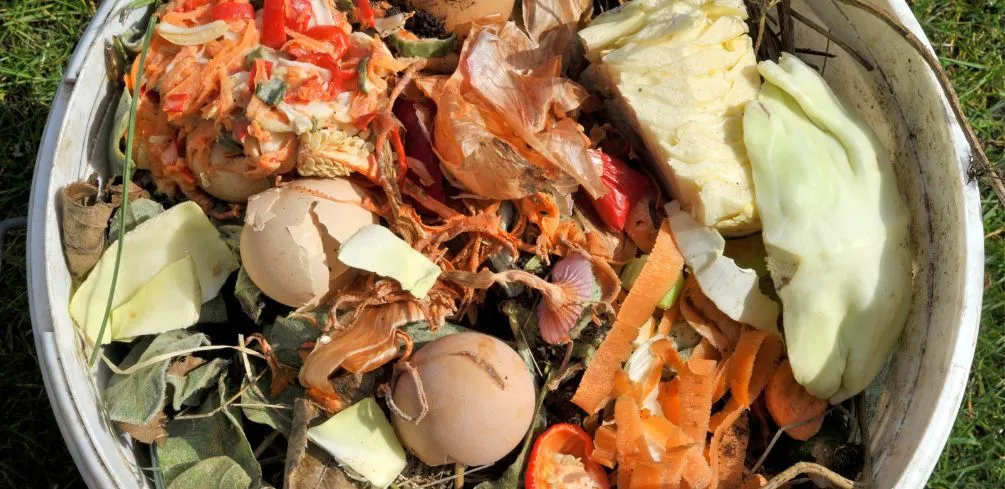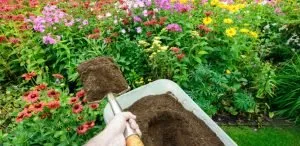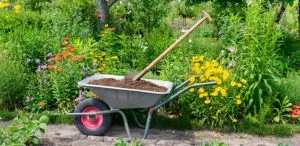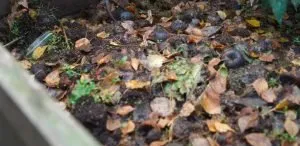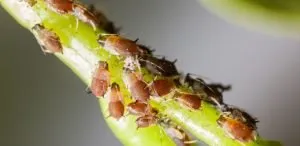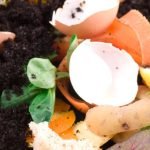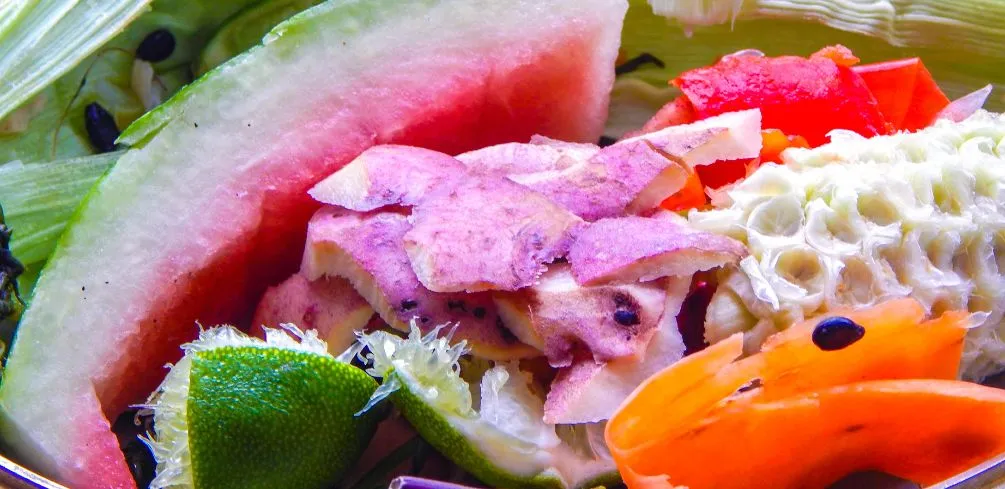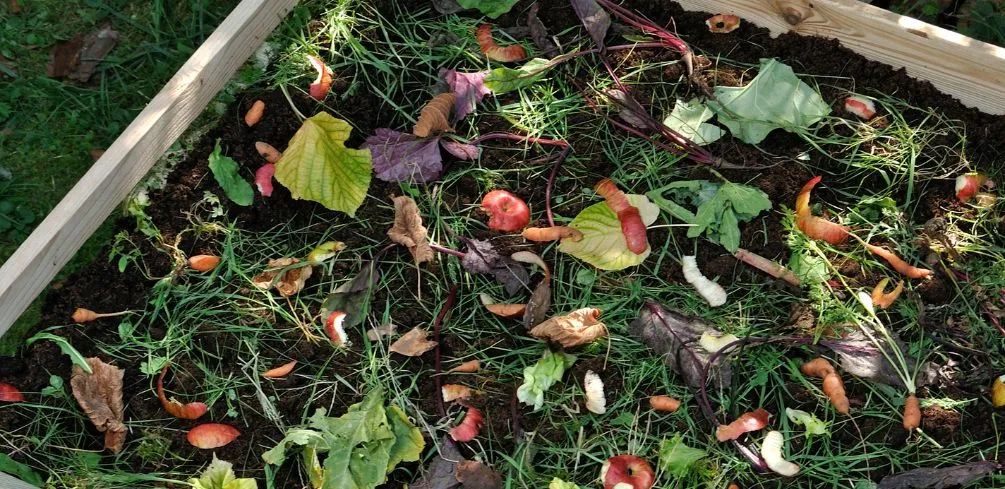Composting is an eco-friendly practice that has gained popularity in recent years due to the increasing concern for environmental sustainability. It involves the decomposition of organic materials, such as food scraps and yard waste, into a nutrient-rich soil amendment that can be used to enrich garden soil.
However, composting requires careful management to ensure that it is done effectively and safely. This article aims to provide an overview of composting do’s and don’ts, including what materials are suitable for composting, how to properly maintain a compost pile, and what common mistakes to avoid.
Composting can be a rewarding experience for those who are passionate about reducing their ecological footprint and contributing positively towards nature. It not only reduces the amount of waste sent to landfills but also provides a source of free fertilizer for gardens.
However, improper composting practices can lead to unpleasant odors, attract pests or rodents, and even contribute to greenhouse gas emissions. Therefore, it is crucial to follow the correct procedures when composting at home or in community settings.
By following the do’s and don’ts outlined in this article, individuals can become part of a larger movement towards sustainable living while nurturing their plants with healthy soil.
Materials Suitable For Composting
Ah, the joys of composting! A process that can make you feel like a mad scientist as you mix and match various materials to create the perfect concoction for your garden.
The truth is, however, not everything belongs in a compost bin. Composting materials: what to include and what to avoid is essential knowledge for anyone who wants to create rich, nutrient-dense soil while keeping their garden and environment healthy.
Firstly, let’s talk about what you can include in your compost bin. Generally speaking, organic materials such as fruit and vegetable scraps, eggshells, coffee grounds and filters, tea bags, grass clippings, leaves, wood chips, and sawdust are all excellent candidates for composting. You can also add shredded paper or cardboard (as long as it’s not glossy or has been treated with chemicals) to help aerate the mixture.
On the other hand, there are items that should be kept out of your compost pile altogether. Meat products (including bones), dairy products, and fats/oils will attract pests and create unpleasant odors.
Diseased plants should also be avoided as they can spread diseases to other plants upon application. Finally, avoid anything that could contain harmful chemicals or toxins such as pet waste or cigarette butts.
If you have limited space for composting but still want to reap its benefits – don’t worry! There are creative solutions available.
Consider using a worm bin that takes up minimal space but still produces high-quality compost. Alternatively, try using a tumbler-style composter which allows for easy mixing without taking up much room.
With these methods at your disposal – along with the knowledge of what materials to use – you’ll be able to create healthy soil that will nourish your plants while reducing waste in no time!
Proper Maintenance Of A Compost Pile
After identifying the materials that are suitable for composting, it is important to maintain the right conditions in order to achieve high-quality compost.
One crucial factor to consider is compost moisture. The ideal moisture level ranges between 40-60%, which is sufficient to allow microorganisms to break down the organic matter effectively.
Moisture levels that are too low can slow down the decomposition process and result in a dry, unpleasant-smelling pile. Conversely, excessive moisture can cause anaerobic conditions that lead to bad odors and inhibit beneficial microorganisms from breaking down the organic material.
Another critical aspect of maintaining a compost pile is turning frequency. Turning involves mixing up the different layers of organic material in order to provide enough oxygen for aerobic bacteria to thrive. The frequency of turning depends on several factors, such as the size of the pile, temperature, and humidity levels.
As a general rule, smaller piles require more frequent turning than larger ones. A well-maintained compost pile should be turned every two weeks during warm weather but less frequently during colder months when microbial activity slows down significantly.
Proper maintenance of these two factors plays an important role in achieving high-quality compost that can be used as an excellent soil amendment for your garden or yard.
Common Mistakes To Avoid
Did you know that composting can reduce the amount of organic waste in landfills by up to 30%? This means less methane gas is released into the atmosphere, which is a significant contributor to climate change.
While composting has many benefits, it is essential to avoid common mistakes that can hinder its effectiveness.
Here are some common mistakes to avoid:
- Over-watering: Too much water can cause the pile to become too wet, which slows down the decomposition process.
- Not turning the pile enough: Turning the pile allows for air circulation and helps distribute moisture and microorganisms throughout the pile.
- Adding non-compostable items: Adding non-compostable items such as meat, dairy, and pet waste can attract pests, slow down decomposition, and emit unpleasant odors.
To ensure successful composting, it’s important to pay attention to these common mistakes. By avoiding them, you’ll be on your way to creating nutrient-rich soil for your garden while reducing waste in landfills.
Remember, composting is a simple yet effective way we can all contribute to a healthier planet.
Benefits Of Composting
Composting is not only a sustainable way to reduce waste, but it also provides numerous benefits.
One of the most significant advantages of composting is that it reduces the amount of waste that ends up in landfills. Organic materials such as food scraps and yard waste make up around 30% of household waste in the United States. By composting these materials, we can divert them from landfills and turn them into something useful.
Another benefit of composting is the production of nutrient-rich soil. Compost contains essential nutrients like nitrogen, phosphorus, and potassium that are vital for plant growth. This natural fertilizer helps plants grow healthier and stronger without relying on harmful chemicals found in synthetic fertilizers.
Furthermore, adding compost to soil improves its structure and water-holding capacity, making it more resistant to erosion and drought. Composting provides an eco-friendly solution to reducing waste while producing a valuable resource for gardening and agriculture.
Sustainable Living And Healthy Soil
As humans, we are like gardeners. Our actions and habits are the seeds that we sow into the earth.
Just like a gardener needs to cultivate healthy soil for their plants to thrive, we too must take care of our environment if we want to grow sustainable communities. By adopting eco-friendly habits and organic gardening techniques, we create a fertile ground that supports life, biodiversity, and food security.
Here are three simple ways you can practice sustainable living and promote healthy soil:
- Composting: One of the easiest ways to reduce waste is by composting your organic materials. Not only does it divert waste from landfills, but it also creates nutrient-rich soil that can be used in your garden. Start small by composting your kitchen scraps, yard waste, and paper products.
- Plant cover crops: Cover crops such as clover or ryegrass help prevent soil erosion and increase organic matter in the soil. They also attract beneficial insects like bees and butterflies.
- Use natural fertilizers: Chemical fertilizers may seem convenient, but they harm the environment by polluting our waterways and harming beneficial microbes in the soil. Instead, use natural fertilizers like compost tea or worm castings to nourish your plants while preserving the health of your soil.
By implementing these practices into our daily lives, we can create resilient ecosystems that benefit not only ourselves but also future generations to come.
Frequently Asked Questions
Can I Compost Meat And Dairy Products?
Composting meat and dairy products are generally not recommended as they tend to attract pests and can also lead to unpleasant odors. Moreover, these items take longer to break down compared to plant-based materials.
However, there are alternatives to meat in composting that can provide the necessary nitrogen for decomposition, such as legumes, coffee grounds, or vegetable scraps. Plant-based composting materials are also more sustainable and eco-friendly compared to animal products.
Therefore, it is advisable to avoid adding meat and dairy products to your compost pile and opt for plant-based alternatives instead.
How Long Does It Take For Compost To Be Ready For Use?
Composting is an efficient way to transform organic waste into nutrient-rich soil that can be used for gardening and farming. The composting timeline varies depending on several factors, including the type of materials being composted, the size of the pile, and the optimal conditions for decomposition.
In general, a well-maintained compost pile can take anywhere from 2 months to 2 years to fully decompose. Optimal conditions for composting include a balanced ratio of green and brown materials, proper moisture levels, and good aeration.
Achieving these conditions can speed up the composting process and produce high-quality compost that is ready for use in a shorter period of time.
How Often Should I Turn My Compost Pile?
Composting frequency and optimal temperature are important factors to consider when maintaining a compost pile. Turning the pile regularly is essential to ensure proper aeration and distribution of nutrients, which are necessary for the decomposition process.
It is recommended to turn the pile every two to three weeks, depending on its size and composition. However, it is essential not to overdo it, as excessive turning can disrupt the natural balance of microorganisms and slow down the decomposition process.
Additionally, keeping the compost at an optimal temperature between 120-150°F (49-65°C) can accelerate decomposition and kill off harmful pathogens. Monitoring these factors regularly can result in a healthy and nutrient-rich compost that is ready for use in as little as two months.
Can I Compost Paper Products With Colored Ink?
Composting with inked paper can be a great way to reduce waste and create nutrient-rich soil. However, it is important to note that not all paper products are suitable for composting. Paper products with colored ink should be avoided as the ink may contain chemicals that are harmful to the environment and human health.
Additionally, composting in urban environments presents unique challenges, such as space limitations and potential odor concerns. It is essential to follow proper composting guidelines and regularly turn the pile to ensure proper decomposition.
By being mindful of what materials are added to the compost pile, individuals can successfully create a sustainable solution for reducing waste while also benefiting their gardens or landscapes.
Do I Need To Add Any Special Additives To My Compost Pile For It To Work Properly?
What additives should be added to a compost pile for it to work properly?
This question is often asked by those who are new to composting. The benefits of adding special additives to a compost pile vary depending on the type of organic material being used, but generally, these additives help accelerate the decomposition process and improve the quality of the resulting compost.
Alternatives to using special additives include adding more carbon-rich materials like leaves, wood chips, or straw or nitrogen-rich materials like grass clippings or food scraps.
Ultimately, the success of a compost pile relies on maintaining a proper balance between these materials and ensuring adequate moisture levels and oxygen flow. By following these guidelines, anyone can successfully create high-quality compost without needing any special additives.
Conclusion
Composting is a wonderful way to reduce waste and create nutrient-rich soil for your garden, but it can be confusing to know what to do and what not to do. It’s important to remember that composting is a science, not an art, and there are certain rules that must be followed for success.
Firstly, meat and dairy products should not be added to your compost pile as they can attract unwanted pests and slow down the decomposition process. Additionally, colored ink paper products should also be avoided as they may contain harmful chemicals that can harm the health of your plants.
On the other hand, turning your compost pile regularly is an essential part of the process as it aerates the pile and speeds up decomposition. As for additives, while they are not necessary, adding things like coffee grounds or eggshells can provide valuable nutrients for your soil.
In conclusion, if you’re looking to start composting, make sure you follow these do’s and don’ts for best results. Remember – composting is a science, so treat it as such!
And if all else fails, just throw everything in a hole in your backyard and hope for the best (just kidding).
